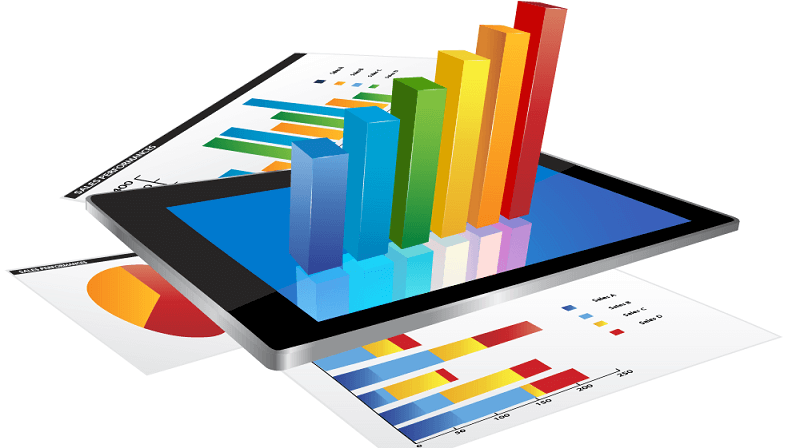Take part in sports betting long enough, and you’ll start to hear more and more about quantitative models. Simply put, these are systems of predictive behaviour that have been designed to help with sports betting.
It’s all in the numbers
In theory, quantitative models determine the probability of all of the possible outcomes of a particular game. Therefore, a robust mathematical core is needed for whichever quantitative model that you’re planning to build.
If you’ve got a good head for numbers, the good news is that the gist of a model shouldn’t be all that hard to grasp. If you’re not much for using the statistics in sports betting but are still interested in quantitative models for sports betting, then prepare yourself for a lot of hard work.

As for the different types of quantitative model: no matter which area(s) of sports betting you want to focus on, you’ll invariably need to use a variation of a Monte Carlo simulation (also known as multiple probability simulation).
It’s impossible to give a thorough example without delving deep into natural algorithms and probability theory. In essence, it takes data and skills to work out the probability.
So, you’ll want to try and predict the likelihood of a particular football player scoring a goal every time he plays. Therefore, you need to input data related to the number of matches that take place over a particular period of time, along with the number of times that person has scored a goal.
This is a very basic outline, as you’d then rely on the quantitative model’s algorithm to interpret possible fluctuations in the probabilities. Still, it does demonstrate just one potential application in the world of sports betting.
You could also try your hand at a system to predict which rugby team will win a particular tournament, how many holes under par a golfer completes during the Open and so on. In short, quantitative models in sports betting all rely on the exhaustive collation of relevant data.
Advantages and Disadvantages of Quantitative Models
The advantages of quantitative models are self-evident: you can potentially end up with a system that accurately predicts the outcome of sports betting events. Provided that all of the relevant data has been entered accurately, you should be left with a robust probability system. However, always keep in mind that professional bookmakers use a vast range of sports experts and you’ll have to outscore them.
It’s no surprise that quantitative models are popular within the world of sports betting. They take a lot of the work out of studying odds, past performance or whichever other statistics you care to scrutinise.
Perhaps the most significant disadvantage, at least initially or if you’re not too keen on maths, is that they require a lot of work to get up and running. Particularly, you have to have a clear objective in mind before you even start.
If we look at the previous example of how often a football player scores a goal, then the objective would be to try and predict the probability of him scoring a goal every time he plays. Simple enough on the face of it.
However, does this objective take into account multiple goals, or just a single goal, per game? Working with quantitative models means working with variables, so you have to make sure that you’ve covered all possible angles when developing the system.
The Inherent Risks of Quantitative Sports Betting Models

Quantitative models can be a double-edged sword – everything they predict is based on theory, which can’t account for certain random factors. Herein lies the primary, inherent risk of using them for sports betting.
In other words, it’s possible to forget how much random (bad and good) luck plays a part in sports. For example, whether a football team’s top scorer sprains their ankle during a match, or if a horse with unfavourable odds ends up winning the Royal Ascot.
No matter how detailed a system you use, there’ll always be some factor that it can’t take into account. That’s why it’s incredibly important to keep on top of the data. One common mistake that people make when considering quantitative models for sports betting is to assume that once you’ve made one, that’s it.
It’s tempting to pay more attention to the predicted numbers than actual statistics. This is the other inherent risk, especially if the system is initially correct. Monitoring results is a crucial ongoing part of quantitative models, as data needs to be continuously updated for the system to be sustainable.
Which Quantitative Model Should You Choose?
Search online for sports betting quantitative models, and you’ll soon end up knee-deep in equations, percentages and esoteric algebra. It’s daunting enough to try and choose an existing system, let alone make one of your own, so how do you know where to start?
As with the systems themselves, it all depends on the following core principles.
Have a clear objective in mind
Since you want to use it for sports betting, are you more interested in predicting the odds for a particular event? Or which team will be more likely to win? Or maybe the chance that a player sustains an injury? These are just a few examples, but they show the breadth of options available. The first step to designing a worthwhile model is starting with a clear objective for your system.Now, it’s possible to find pre-existing quantitative models for sports betting online. This is recommended if you’re not particularly au fait with spreadsheets and data management. A caveat, though: these systems may not be exactly what you’re after. Using an incorrect system is as damaging as using a proper one that’s never updated.
Otherwise, if you’re confident in your abilities, set about developing the necessary algorithms and spreadsheets. There are many in-depth and specific articles online on this topic.
If you are not keen on building your own system, research everything before choosing a particular alternative. As mentioned earlier, you will find all sorts of different options, and some of them are a lot more special than others. However, this does not mean that they are the ideal option for you.
Returning to the first point, you can pick the best possible solution once you have a clear mind and goals. Feel free to experiment, but just be careful because this “test” may cost you a lot of money.
All sports betting quantitative models require constant monitoring. Actually, it’s about time to point out that you have to choose reliable and licensed bookies, which will guarantee you a fair play. Otherwise, all your calculations might go to waste if a scam betting site decides to ban you and block all your winnings. This Whether you use an existing system or make your own, it’s imperative that you update the data as often as possible.
Last of all, it bears repeating that quantitative models are theoretical, and therefore not a stone-cold guarantee of success. Whether you decide to choose an existing model or design your own, be prepared for failure.
Then be prepared to tweak the data and formulas as many times as necessary until the system works. It’s not easy, but if you wish to apply a quantitative model to sports betting, then its sustainability depends on your continued research, work and determination.

